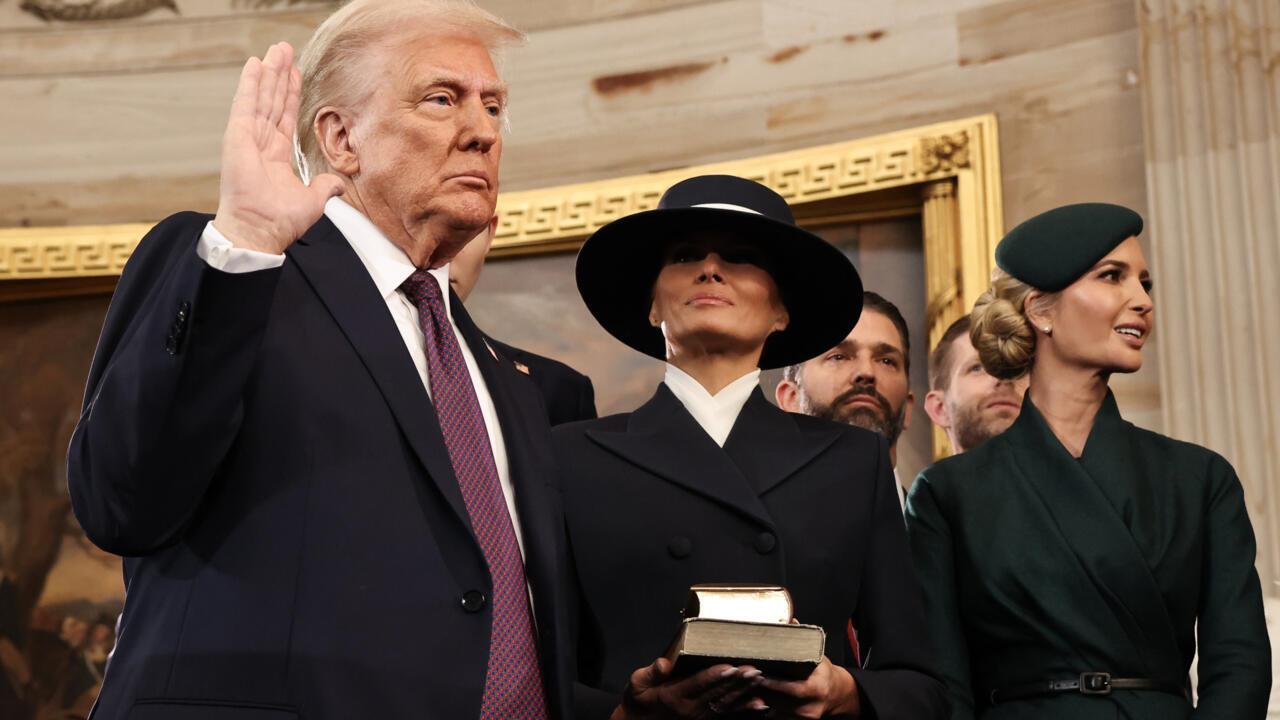
Trump's Inaugural Address: A Blueprint For 'America First' Foreign Policy
Seizing the moment, Trump also criticized his predecessor, Joe Biden, blaming the previous administration for ushering in an era of American decline. He argued that his administration would initiate a decisive pivot toward policies prioritizing national interests and restoring the American people's faith in their institutions. The speech outlined his vision for rebuilding the US as a globally admired and respected superpower.
In his address, Trump emphasized the need to reinstate traditional American values, recognizing only two genders and discontinuing federal diversity initiatives. He declared a national emergency at the southern border, vowing to stop illegal immigration and deport millions of“foreign criminals.” He also proposed ending birthright citizenship and requiring asylum seekers to wait in Mexico.
Trump's speech highlighted significant policy decisions, including revitalizing American industries harmed by globalization and strengthening protectionist measures against unfair trade agreements. He pledged to review trade deals like NAFTA and agreements with China, which he blamed for job losses. Additionally, he promised investments in infrastructure, job creation, and support for the fossil fuel industry, opposing global environmental trends.

Dr. Marwa El-Shinawy
These decisions signal a major shift in US policy, with potentially far-reaching consequences. Domestically, these actions could heighten social and political divisions, especially over immigration and gender identity. On the international stage, Trump's environmental policies could strain relations with countries committed to the Paris Climate Agreement, potentially hindering global efforts to address climate change.
A key moment in Trump's speech was his declaration of a plan to reclaim control of the Panama Canal. He attributed the loss of this vital asset to China to previous policies, positioning this move as part of a broader strategy to restore sovereignty over crucial resources that are essential to the US economy and strategic interests. Trump emphasized that the decision to cede control of the Panama Canal in 1999 had been a historical error that diminished American influence in the region and allowed countries like China to strengthen their presence there.
This is not the first time President Trump has signalled his intent to regain control of the Panama Canal. His initial statement came on January 7, 2024, following Congress's certification of his election victory. Trump referred to the canal as“one of the pillars of American national security,” reflecting his views on geopolitical affairs. This perspective draws on the long and complex history of US-Panama relations, which peaked in the twentieth century.
The story traces back to President Theodore Roosevelt, who made the construction of the Panama Canal a central goal for enhancing American economic and military power. After the US supported Panama's independence from Colombia in 1903, a treaty was signed granting the US control of the land needed for the canal's construction. The canal was completed in 1914, solidifying the US's status as a global power but also creating a legacy of diplomatic tension. Relations between Washington and Panama grew increasingly strained over the years, culminating in the 1977 Carter Treaty, which stipulated Panama would gain full control of the canal by the year 2000.
Today, Trump's remarks have reignited this issue, framed within the context of national interests. The American president underscored the canal's significance both economically and geopolitically, noting that it facilitates 6% of global maritime trade, making it a crucial artery for US commerce. Trump also contended that Panama's high tariffs impose an unacceptable burden on the American economy, calling for a reassessment of Panama's control over this strategic resource.
Trump's statements reflect a longstanding conservative current in American politics that resists relinquishing the US's colonial legacy in Panama. Since the Carter Treaty, Republican voices have repeatedly expressed their discontent, viewing the cession of the canal as a“betrayal” of national interests. This perspective aligns with Trump's characterization of the treaty as“historical folly,” reigniting the debate over America's entitlement to control this vital waterway.
The controversy surrounding Trump's remarks is particularly focused on his comments regarding China's role in the canal region. The US president claimed that Beijing seeks to dominate the area, presenting a threat to American interests. He views China's involvement as a potential risk to US national security, a claim the Panamanian government vehemently rejected, emphasizing the canal's neutrality and its opposition to any foreign interference, whether from the US or China.
Trump's speech marks a pivotal moment in US-China relations. His pointed remarks about Beijing reflect a growing recognition of China's rise as a formidable global competitor, both economically and militarily. His actions, including threats to impose tariffs and heightened scrutiny of Chinese companies operating in the US, reveal a clear intent to curb China's influence over global supply chains.
Furthermore, the announcement regarding the Panama Canal introduces a new dimension to the US-China rivalry. The canal has become a focal point in the economic conflict between Western nations, particularly the US and China. China has made substantial investments in infrastructure projects around the canal and is working to enhance its economic presence in Latin America, which it views as a key component of its Belt and Road Initiative. This may prompt Beijing to explore alternative trade and technological pathways to reduce its dependence on the canal, further intensifying the competition for influence between the two nations.
In conclusion, Trump's inaugural address presented a distinctive perspective on global issues and international relations, blending a desire to reclaim economic dominance with concerns about losing it to rivals like China. While his proposals may resonate with specific segments of the American public, the assertion of control over the Panama Canal signals the beginning of a new phase in international tensions, complicating US-China relations and profoundly impacting the global order.
Dr. Marwa El-Shinawy – Academic and Writer

Legal Disclaimer:
MENAFN provides the
information “as is” without warranty of any kind. We do not accept
any responsibility or liability for the accuracy, content, images,
videos, licenses, completeness, legality, or reliability of the information
contained in this article. If you have any complaints or copyright
issues related to this article, kindly contact the provider above.


















Comments
No comment